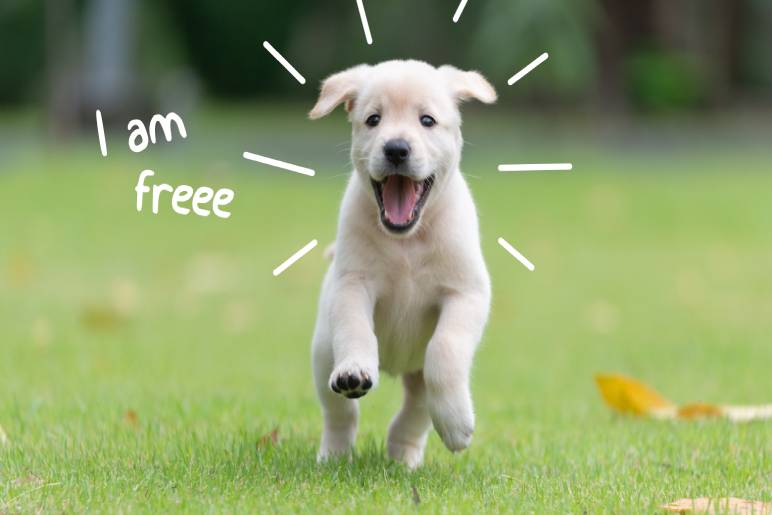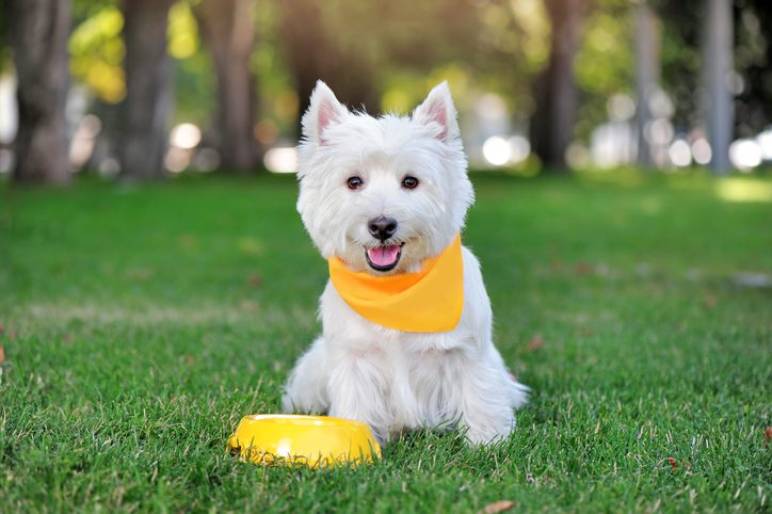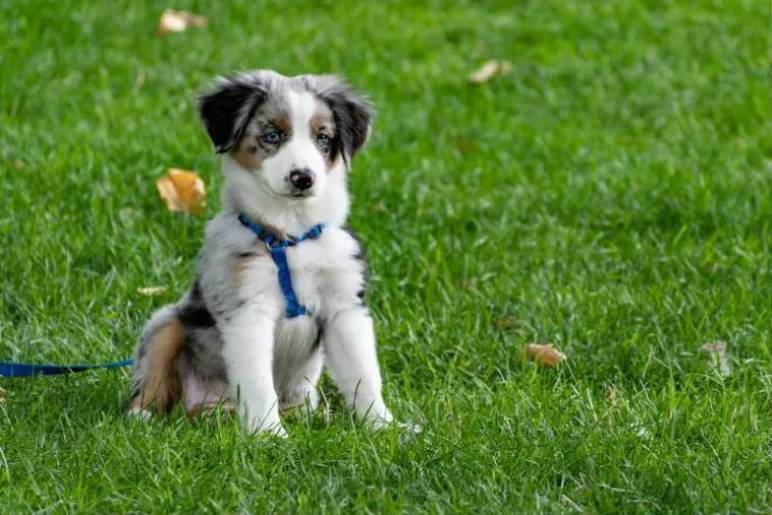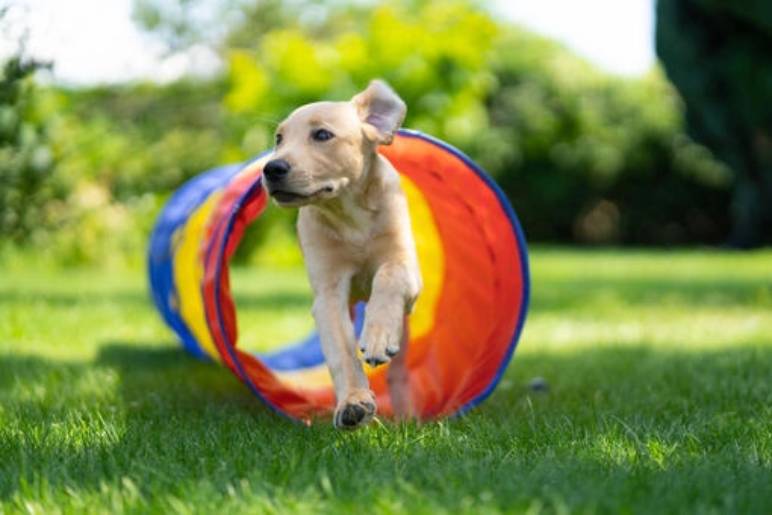Welcoming a puppy into your home is one of the most exciting experiences for any pet lover. However, it also comes with a lot of responsibility, especially when it comes to their care and well-being. One of the most frequently asked questions by new puppy owners is, “When can puppies go outside?” This question is crucial for both the safety and development of your puppy. In this blog post, we’ll answer that question and provide essential tips on when and how to introduce your puppy to the outside world.
The Importance of Socializing Your Puppy

Before diving into the specifics of when your puppy can go outside, let’s talk about the importance of early socialization. Puppies are highly impressionable during their first few months of life, and exposure to new experiences, environments, and people can play a significant role in shaping their temperament and behavior as they grow.
Proper socialization is critical because it helps prevent behavioral issues like fear, aggression, and anxiety. It also builds your puppy’s confidence, making them more comfortable around new environments and experiences.
The Ideal Time to Start Outdoor Adventures

Most veterinarians and experienced dog trainers recommend waiting until your puppy is at least 16 weeks old before taking them outside to public areas. This is primarily due to the puppy’s vaccination schedule. During the first few weeks of life, puppies are extremely vulnerable to diseases, especially parvovirus and distemper. Their immune systems are still developing, and until they’ve completed their vaccination series, they are not fully protected.
The typical vaccination schedule for puppies is as follows:
- 6-8 weeks: First round of vaccinations (DHPP – Distemper, Hepatitis, Parainfluenza, Parvovirus)
- 10-12 weeks: Second round of vaccinations
- 12-16 weeks: Final round of vaccinations
Puppies need to receive all their vaccinations and wait about a week after the final dose before it’s considered safe to take them outside, particularly to places where other dogs frequent, like parks or pet stores.
What About Socialization Before 16 Weeks?

Though it’s not safe to expose your puppy to the outdoors until their vaccinations are complete, socialization can and should still begin early. During the first 12 weeks of life, puppies go through a critical period for socialization. This is the best time to introduce them to various stimuli, such as people, sounds, and safe, controlled environments.
Here are some ways to start socializing your puppy indoors and in safe environments:
- People and Other Pets: Invite friends and family over to meet your puppy and introduce them to other vaccinated pets in the household. This helps your puppy become comfortable with various people and animals.
- Sounds and Sights: Expose your puppy to different noises and visual stimuli such as vacuum cleaners, televisions, and household appliances. This helps prevent fear-based reactions later in life.
- Controlled Environments: Consider using your yard or a secure, private space where your puppy can explore and start to get used to being outside while remaining safe from other animals and potential dangers.
If you’re not sure how to properly socialize your puppy or need help with training, seeking advice from a dog trainer in Liverpool can provide expert guidance. Socializing your puppy properly early on can prevent future behavioral issues and set your dog up for success in public spaces.
First Time Outside: How to Make It Safe and Enjoyable

Once your puppy has had their vaccinations, it’s time to venture outside. Here’s how you can make the experience as safe and enjoyable as possible:
- Start Slowly: Begin with quiet, low-risk areas like your own backyard or a quiet park with minimal dog traffic. This ensures that your puppy doesn’t feel overwhelmed by large crowds or aggressive dogs.
- Use a Leash and Harness: A leash and harness are essential to keep your puppy secure and under control. A collar may not be the best option for puppies, as it can put strain on their neck. A harness provides better control and comfort.
- Observe Your Puppy: Pay close attention to your puppy’s behavior during these outdoor excursions. Some puppies may be hesitant at first, while others may be excited. It’s important to go at their pace and not force them into uncomfortable situations.
- Keep It Short: Puppies have a lot of energy, but they also get tired quickly. Keep your outdoor adventures short and sweet, gradually increasing the time as your puppy becomes more comfortable.
- Avoid Crowded Areas: Until your puppy is fully accustomed to outdoor environments, avoid crowded or heavily trafficked areas. Parks, busy streets, and other popular dog spots can expose your puppy to other animals and germs that they aren’t yet prepared to handle.
Understanding Puppy Behavior Outside
Your puppy may exhibit various behaviors during their first outdoor experiences, such as sniffing everything, barking at strange noises, or trying to jump on people. This is all normal. Exploring the outside world is exciting and stimulating for puppies, and they are naturally curious. They may want to interact with other dogs, which can be a good thing, as long as the other dog is vaccinated and friendly.
If your puppy seems overly anxious or fearful, it might be a sign to slow things down and reintroduce them to outdoor spaces at a more comfortable pace. Positive reinforcement, like treats and praise, can help them associate outdoor experiences with rewards, making them more confident in the future.
Protecting Your Puppy from Harmful Elements
When taking your puppy outside, always be mindful of potential dangers. Here are some things to watch out for:
- Toxic Plants: Some plants can be harmful or even deadly if ingested by dogs. Make sure to research which plants are toxic to pets and avoid letting your puppy nibble on unknown greenery.
- Extreme Weather: Puppies are sensitive to temperature extremes. Avoid taking them outside in very hot or cold weather, as they can easily get overheated or hypothermic.
- Other Dogs: Not all dogs are friendly or well-socialized. Be cautious when introducing your puppy to new dogs and keep a safe distance from unfamiliar dogs until your puppy has gained more confidence.
- Leash Training: Proper leash training is essential for controlling your puppy’s outdoor adventures. A dog trainer in Liverpool can help you teach your puppy how to walk on a leash without pulling, making outdoor time more enjoyable for both of you.
Conclusion
In summary, puppies can go outside after they have completed their vaccinations at around 16 weeks of age. However, early socialization and exposure to new environments should begin much earlier, even before they are fully vaccinated, as long as it’s done safely and responsibly. If you need additional guidance on puppy socialization or training, consulting with a professional dog trainer in Liverpool can help ensure your puppy gets the best start in life.
By taking things slowly, observing your puppy’s behavior, and ensuring their safety, you can help them grow into a confident, well-adjusted adult dog ready to enjoy the world outside your home.
Have A Look :-
